Dr. Nafeesa K
HoD, Dept of Electrical & Electronics Engineering
hodeee@mesce.ac.in
9447934220
Electrical & Electronics Engineering
Electrical and Electronics Engineering (EEE) is embedded by diverse fields encompassing research, design, development and operation of electrical systems. This includes Electronics, Power Generation & Distribution Systems, Computer Systems, Internet hardware, Bio-medical Engineering, Space Exploration Systems, Robotics, Artificial Intelligence and many more. Technical areas within the EEE discipline include Electro magnetics, Electronics, Power Systems, Control Systems, Instrumentation Systems, Digital systems, Power Electronics, Signal processing and Communication systems. Requirement of Electrical Engineers extends from designing, implementing, maintaining and improving motors to radars. The course provides an excellent platform for imparting knowledge in the latest technology resorting to computer based education in a software environment. With ever increasing demand for energy and newer areas of energy production, the course provides ample opportunities for employment. B Tech in Electrical and Electronics Engineering is accredited by NBA and the department is offering PhD program in power electronics, control and renewable energy systems. The Department has well equipped laboratories and computing facilities, with latest technology and syllabus requirements. The department faculty rooms and the laboratories are connected by the institute LAN linking with all other departments and the Internet world outside. Well qualified faculty and skilled supporting staff are the strengths of the department. Job opportunities are expected to increase in Electrical & Electronics Engineering (EEE) sectors in coming years. Leading companies like TESLA, Maruti, Tata, Mahindra and Toyota are shifting to electric vehicles and builders are converting their buildings with solar rooftop installations. Hence KTU has included new courses like smart grid technology, hybrid and Electric vehicles, Renewable energy sources in the syllabus of Electrical Engineering to meet the industry demands. In general, Electrical and Electronics Engineering deals with the engineering problems, opportunities and needs of electrical, electronics, computer, telecommunication systems and related industries. In addition to this, the department is offering various skill development programs funded and supported by Central and state Govt. agencies like Ministry of New and Renewable Energy (MNRE), National Institute of Solar Energy (NISE), Agency for Non-conventional Energy and Rural Technology (ANERT) and Centre of Management Development (CMD). Department is also selected as the training centre of ANERT.
Vision
To develop as a centre of excellence in Electrical and Electronics Engineering to mould competent, committed, creative and compassionate engineering professionals, with best technical, analytical, innovative and interactive skills for feasible development of nation.
Mission
To provide quality teaching and learning environment to produce Electrical and Electronics Engineers having strong theoretical foundation, good design experience and exposure to research and development.
To inculcate value based, socially committed professionalism for overall development of students and society.
To develop and disseminate technology for sustainable development and help create systems to meet the energy requirement of the nation.
Programmes Offered
B.Tech in Electrical & Electronics Engineering - 60 Seats
M.Tech in Instrumentation and Control - 18 Seats
PhD - 2 Occupied Seats
PROGRAM EDUCATIONAL OBJECTIVES (PEOs)
After 3-5 years of graduation, our students will be able to do the following-
- Utilize fundamental knowledge and skills to design, analyze and test electrical systems to meet the needs of the society and industry.
- Function ethically in multidisciplinary teams to develop sustainable solutions for global, environmental and social issues and communicate effectively.
- Integrate academic insight with relevant industry scenario for collaborative research.
- Develop creative and critical reasoning skills for diverse career and lifelong learning.
PROGRAM SPECIFIC OUTCOMES (PSOs)
After graduation, our students will be able to do the following-
- Apply fundamental knowledge to identify, formulate, design and investigate various problems of electrical and electronic circuits, electrical machines, electrical drives, power electronics, and power systems.
- Solve ethically and professionally various Electrical Engineering problems in societal and environmental context and engage in life- long learning by applying modern hardware and software tools.
- Demonstrate effective communication, leadership and teamwork skills to successfully adapt in multi disciplinary environments.
- Apply project management techniques to complex engineering problems.
PROGRAM OUTCOMES (POs)
After graduation, our students will be able to do the following-
-
Engineering knowledge : Apply the knowledge of mathematics, science, engineering fundamentals and an engineering specialization to the solution of complex engineering problems.
-
Problem analysis : Identify, formulate, review research literature, and analyze complex engineering problems reaching substantiated conclusions using first principles of mathematics, natural sciences, and engineering sciences.
-
Design/development of solutions : Design solutions for complex engineering problems and design system components or processes that meet the specified needs with appropriate consideration for the public health and safety, and the cultural, societal, and environmental considerations.
-
Conduct investigations of complex problems : Use research-based knowledge and research methods including design of experiments, analysis and interpretation of data, and synthesis of the information to provide valid conclusions.
-
Modern tool usage : Create, select, and apply appropriate techniques, resources, and modern engineering and IT tools including prediction and modeling to complex engineering activities with an understanding of the limitations.
-
The engineer and society : Apply reasoning informed by the contextual knowledge to assess societal, health, safety, legal and cultural issues and the consequent responsibilities relevant to the professional engineering practice.
-
Environment and sustainability : Understand the impact of the professional engineering solutions in societal and environmental contexts, and demonstrate the knowledge of, and need for sustainable development.
-
Ethics : Apply ethical principles and commit to professional ethics and responsibilities and norms of the engineering practice.
-
Individual and team work : Function effectively as an individual, and as a member or leader in diverse teams, and in multidisciplinary settings.
-
Communication : Communicate effectively on complex engineering activities with the engineering community and with society at large, such as, being able to comprehend and write effective reports and design documentation, make effective presentations, and give and receive clear instructions.
-
Project management and finance : Demonstrate knowledge and understanding of the engineering and management principles and apply these to one’s own work, as a member and leader in a team, to manage projects and in multidisciplinary environments.
-
Life-long learning : Recognize the need for, and have the preparation and ability to engage in independent and life-long learning in the broadest context of technological change.
Copyright © 2026 MES College of Engineering. All Rights Reserved
Developed and maintained by Cabin4 Professionals





